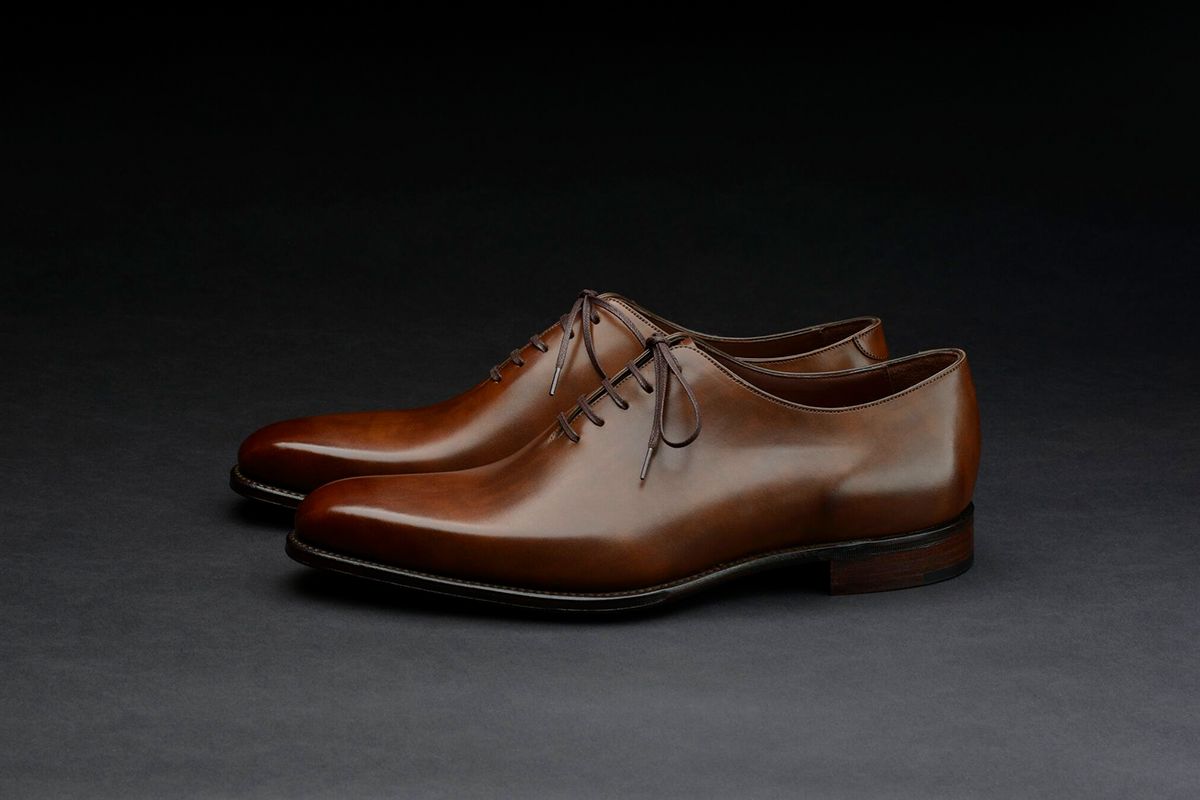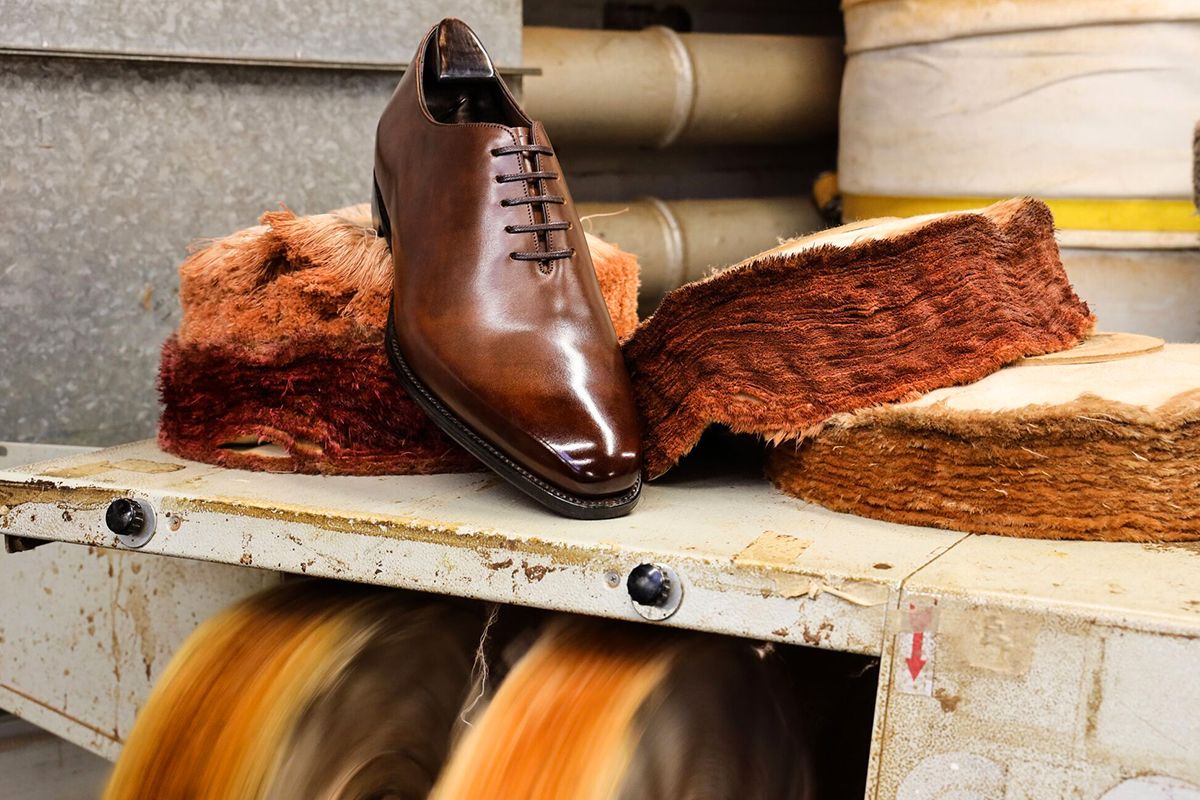A discussion about “Made in England”

In response to growing consumer interest in the provenance of the products they buy, Andrew Loake gives a frank and honest account of Loake’s position on the “country of origin” question.
Made in England, a mark of quality
We’ve noticed a big increase in the number of people who are interested in where things are made. Since the advent of the Internet, consumers have become ever more knowledgeable and demanding, and one result of this is that more and more people want to support local economies and local manufacturing.
However, if you want to find out where something was made, it can be very difficult. That can certainly be the case in the world of footwear. So, I thought we should try to shed a little more light on the subject.
Approximately 99% of all footwear sold in the UK is now sourced from overseas but it is interesting to note that, within the EU, there is currently no legal requirement to label goods with their country of origin. Consequently, most brands (including many “English” brands) do not mark their products with the country of origin.
At Loake, however, we believe that footwear should be marked with its country of origin – so we mark it. We are extremely proud of our manufacturing heritage and tradition and we take pride in the fact that we produce our own shoes – even though some of them are made overseas. Marking all of our shoes with their country of manufacture also means that we can export them to countries outside the EU in the knowledge that we are complying with the regulations.
Designed in Kettering and meticulously crafted in India
As many will know, in addition to our main factory in Kettering, we have a second factory in India, which we set up some years ago to give us extra production capacity. The majority of our Goodyear Welted shoes are made in our factory in Kettering, and there are some styles in the “Design Loake” range that we can produce in either factory. We set up our own factory, rather than just sourced shoes from existing factories, because we were adamant that we didn’t want to sell Indian shoes – we wanted to make English shoes in India. So, the development work is all carried out here in Kettering and we supply almost all of the materials from here. We specify every single detail – from what kind of thread should be used to how many stitches per inch. If the same style is made in Kettering and India, they are indistinguishable – the only difference is the cost.
But, when you look on our website, every product page clearly shows the country of origin of each and every style. We have also now started to mark the Indian-made shoes more clearly in the linings so that people who want to support British manufacturing can be sure of doing so.

So, if you want to buy really good quality, stylish shoes that are great value for money, our Design Loake Collection, most of which are made in India, range will provide just that. If you just want a basic, but still good-quality, Goodyear welted business shoe, our L1 collection, which are all made in India, provides unbeatable value.
Loake's craftsmanship,synonymous of quality
In both of these factories, we only make traditional shoes by the Goodyear welted construction. So, the shoes of other constructions – moccasins, boat shoes, desert boots, driving shoes, etc. – are all sourced from overseas. The origin will depend on where we can find the best factories for these particular styles. So currently, for example, our moccasins come from Italy and India, our boat shoes and drivers come from Portugal and our desert boots come from Italy. All of these more casual styles are branded “Loake Lifestyle” and, of course, are all marked according to their origin.
But, if you want to know that you are buying an English-made Goodyear welted shoe, and want the best quality available (but still at a good price), then you can choose anything from our premium “Loake 1880” collection or our mainline “Loake Shoemakers” range, all of which are made in Kettering, here in the heart of Northamptonshire.
Anyone who makes anything in England will certainly want their customers to know where it’s made, so it will usually be labeled accordingly. I suppose the ‘rule of thumb’ should probably be: “if it doesn’t say on it that it’s made in England, you can probably assume that it isn’t”.
Navigate our website for a closer look into our collection and immerse yourself in the world of Loake.












